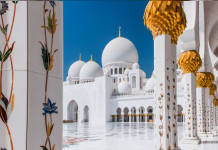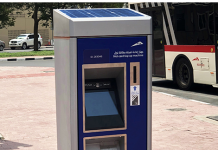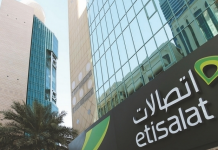Dubai: Examining savings and investment habits of expatriates in the UAE, a recent study suggests that 65 per cent of expats living in the UAE would like to make it their permanent home.
The study conducted by Friends Provident International (FPI), a provider of savings, investment and protection solutions, carried out the survey in November 2017, which included 565 expatriate respondents who hailed from a range of countries, including India, the UK, South Africa, the Philippines, Australia, as well as other Western and Asian countries.
Philip Cernik, chief marketing officer, Middle East and Africa at FPI, talked to Gulf News about the report’s main highlights, which give insight into the lifestyle, habits, and future goals of expatriates in the country.
According to the survey’s findings, 44 per cent of respondents cited earnings potential as a key reason for coming to the UAE, while 34 per cent said they were motivated by work opportunities. Meanwhile, 20 per cent of respondents want to buy property in the UAE, while 58 per cent of parents want their children to attend university in the UAE.
“Although it is unsurprising that expats enjoy their life here in the UAE, we were interested to discover that over half of respondents wish to remain in the country permanently. This is a testament to the lifestyle and hospitality of the UAE, and highlights the importance placed on the financial potential that comes with living here,” said Cernik.
Who is saving?
He pointed out that, while the findings showed that 34 per cent of expats said they are motivated by work opportunities in the UAE and almost half cited earnings potential as a key reason for wishing to reside in the UAE, 56 per cent claimed their biggest concern is ensuring they have enough to live on.
“This could be explained by supposing many expats are either having a great time in the world of opportunities and choosing to spend their money on lifestyle, or that the financial situation is getting a little tighter,” he said.
Comparing figures from the recent survey with that from research carried out in 2013, Cernik confirmed the findings that suggest people are “slightly worse off now” than they were five years ago.
He also pointed out the findings suggest a gap between the dreams and financial reality for most respondents, as figures show that 21 per cent of expats are concerned about debt, while only 15 per cent are saving for retirement.
“There is an interesting disparity here that suggests people are not saving as much as they would like, or indeed need to. There is a definite disconnect between goals and actions to meet their goals,” said Cernik.
The majority of expats surveyed, highlighted they would like to retire between 61 and 65 years. However, findings show that only 13 per cent possess temporary cover or an insurance plan, and a further 13 per cent possess whole of life cover plan.
“The survey showed that the majority of expats understand they need to have a life insurance, but are not acting on getting it done. This could be because they don’t know where to go and get credible advice, or it could depend on how actively this is discussed and how much insurance companies are doing to raise the issue,” said Cernik.
Investment habits
Addressing investment habits among expats in the UAE, the survey showed that 20 per cent of savers aspire to own property in the UAE, while 33 per cent consider saving for a business.
“For many expats who want to live in the UAE permanently, owning a business or investing in a property will give them the right to remain in the country through the six-month renewable visa. Regardless of nationality, we received the answer “I wish to remain in the UAE forever” from more than half of the respondents,” added Cernik.
However, when it comes to focus on owning property by nationality, the findings show that South Africans have ranked first as most interested nationality of expat residents in owning a property in the UAE.
“Indians are heavily focused to save for their businesses and children’s education and are less focused on retirement and property, when compared to 2013 findings. Their attitude towards investment is changing — back in 2013 it was all about gold, bonds and property, and now it’s about stocks and shares,” explained Cernik.
He pointed out the recent introduction of the VAT in the UAE could possibly have an impact among the lower earners, but would not majorly affect the overall findings.
“Through globalisation, people are becoming more unified, and attitudes and behaviours are becoming more similar. While there was a more distinct difference between nationalities before, cultural barriers are breaking down and people are socialising more with other nationalities and therefore adopting other attitudes,” said Cernik.
He pointed out that with many expats taking on the multi-cultural Dubai culture, people are caught between their traditions and the culture in the UAE, which is ultimately affecting their lifestyle habits.
























